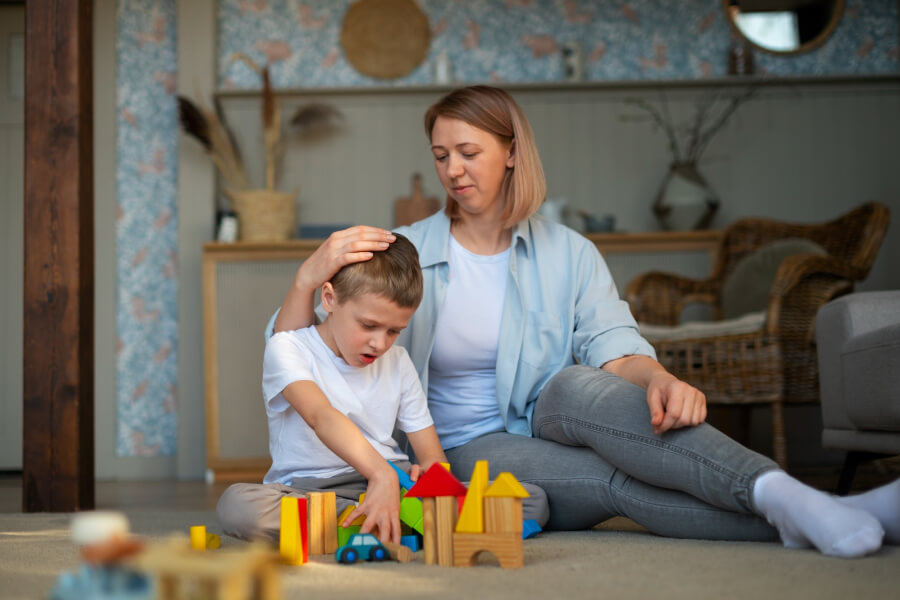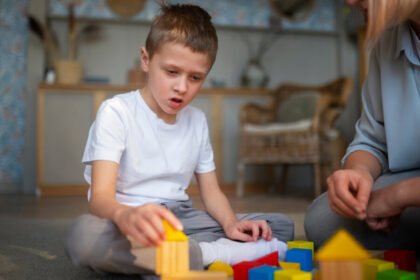Autism Spectrum Disorder (ASD) is a complex neurodevelopmental condition that affects communication, social interaction, and behavior. While conventional treatments like speech and occupational therapy play a vital role in supporting children with autism, many parents seek additional strategies to help manage their child’s symptoms.
Natural therapies can offer a holistic approach, focusing on nutrition, lifestyle changes, and alternative treatments. Here are some various natural therapies that may benefit children with autism, helping to promote their overall well-being.
[ASD] and Its Impact
Autism Spectrum Disorder is characterized by a wide range of symptoms and challenges, varying significantly from one individual to another.
Common characteristics of ASD include difficulties in communication, repetitive behaviors, and restricted interests. Children with autism may also experience sensory sensitivities, which can affect their daily lives and interactions.
Behavioral Characteristics and Challenges
Children with autism may struggle with understanding social hints, making eye contact, or engaging in conversations.
They might also exhibit repetitive behaviors, such as hand-flapping or lining up toys. These challenges can lead to feelings of frustration and isolation, both for the child and their family.
Conventional Treatments and Therapies
Speech and Occupational Therapy
Speech therapy focuses on improving communication skills, and helping children with autism articulate their thoughts and engage in conversations.
Occupational therapy, on the other hand, aims to develop daily living skills and improve sensory processing abilities.
These therapies are essential components of an effective treatment plan for children with autism.
Behavioral Therapy Approaches
Applied Behavior Analysis (ABA) is a widely recognized behavioral therapy that encourages positive behaviors while discouraging negative ones.
ABA techniques can be tailored to each child’s unique needs, making it an effective tool for many families.
Pharmacological Interventions
In some cases, healthcare providers may prescribe medications to help manage specific symptoms associated with autism, such as anxiety or hyperactivity.
While these medications can be beneficial, they often come with potential side effects, leading many parents to explore natural alternatives.
Natural Remedies and Complementary Therapies
The Role of Nutrition in Autism Management
A balanced diet can significantly influence the health and well-being of children with autism. Some studies suggest that certain dietary interventions, such as gluten-free or casein-free diets, may reduce some symptoms.
Adding whole, unprocessed foods rich in essential nutrients can support brain health and overall development.
Herbal and Plant-Based Treatments
Many parents consider herbal remedies as complementary therapies for autism. Some common herbs that may benefit children with autism include:
- Ginkgo Biloba: Known for improving cognitive function and improving memory.
- St. John’s Wort: Often used to reduce symptoms of anxiety and depression.
- Chamomile: This may help calm hyperactivity and promote relaxation.
Before introducing any herbal remedies, it’s important to consult with a healthcare professional, as interactions with medications may occur.
Massage and Aromatherapy
Massage therapy can promote relaxation and reduce anxiety in children with autism. A gentle, calming touch can help improve sensory integration and foster emotional connections.
Similarly, aromatherapy using essential oils, such as lavender or chamomile, may help create a soothing environment for children with autism, promoting better sleep and emotional well-being.
Acupuncture and Traditional Chinese Medicine
Acupuncture, a practice rooted in Traditional Chinese Medicine, involves inserting thin needles into specific points on the body to promote healing and balance.
Some parents have reported improvements in their children’s behavior and social skills following acupuncture treatments. However, it’s essential to seek a qualified practitioner experienced in treating children with autism.
Lifestyle and Home-Based Interventions
Sensory Integration Techniques
Children with autism often experience sensory processing challenges. Implementing sensory integration techniques, such as using weighted blankets or fidget toys, can help them self-regulate and manage sensory overload.
Creating a sensory-friendly environment at home can significantly impact their comfort and well-being.
Art and Music Therapy
Art and music therapy offer creative outlets for children with autism to express their emotions and improve communication skills.
These therapies can foster social interactions and provide a safe space for children with autism to explore their feelings.
Importance of Physical Activity and Outdoor Play
Regular physical activity is essential for all children, including those with autism. Engaging in outdoor play, sports, or movement activities can boost mood, reduce anxiety, and improve focus.
Creating opportunities for unstructured play can help children with autism develop social skills and build relationships.
Family Support and Involvement
Coping Strategies for Parents and Caregivers
Parenting a child with autism can be challenging, and caregivers must prioritize their well-being.
Seeking support from other parents, professionals, or support groups can help caregivers share experiences and coping strategies.
Mindfulness practices, such as yoga or meditation, can also be beneficial for managing stress.
Building a Supportive Environment at Home
Creating a structured, supportive environment at home can help children with autism thrive.
Establishing routines and clear expectations can provide a sense of security, making it easier for children with autism to navigate daily challenges.
Creating Effective Communication Channels
Communication is key to understanding and supporting children with autism. Utilizing visual aids, social stories, and clear, simple language can improve communication and foster connections.
Emerging Trends and Research in Autism Care
Innovative Therapies and Technologies
As our understanding of autism evolves, new therapies and technologies are being explored to support children with autism.
This includes virtual reality therapy, which can help children with autism practice social skills in controlled environments, and mobile apps designed to improve communication and learning.
The Impact of Gut Health on Autism
Recent research suggests a connection between gut health and autism symptoms. Probiotics and a diet rich in fiber may support gut health, potentially improving behavioral symptoms in some children.
Conclusion
Natural therapies can play a supportive role in managing autism symptoms and promoting overall well-being for children with autism.
From nutrition to alternative treatments, there are various approaches that parents can explore. It’s important to combine these therapies with conventional treatments for the best outcomes.
Always consult with healthcare professionals before implementing new therapies to ensure they align with your child’s needs. With the right support and strategies, children with autism can thrive and lead fulfilling lives.
FAQs
What are the holistic therapies for autism?
Holistic therapies for autism include nutritional interventions, herbal remedies, massage therapy, art and music therapy, and acupuncture.
Which therapy is the most effective for autistic children?
There isn’t a one-size-fits-all approach. Behavioral therapies like ABA and speech therapy are widely recognized, but natural therapies can complement these treatments.
What other treatments or therapies are used to manage autism?
Conventional treatments like occupational therapy, speech therapy, and pharmacological interventions are commonly used alongside natural therapies.
What is the herbal treatment of autism?
Herbal treatments may include supplements like Ginkgo Biloba, St. John’s Wort, and chamomile, but it’s essential to consult a healthcare professional before starting any herbal regimen.






